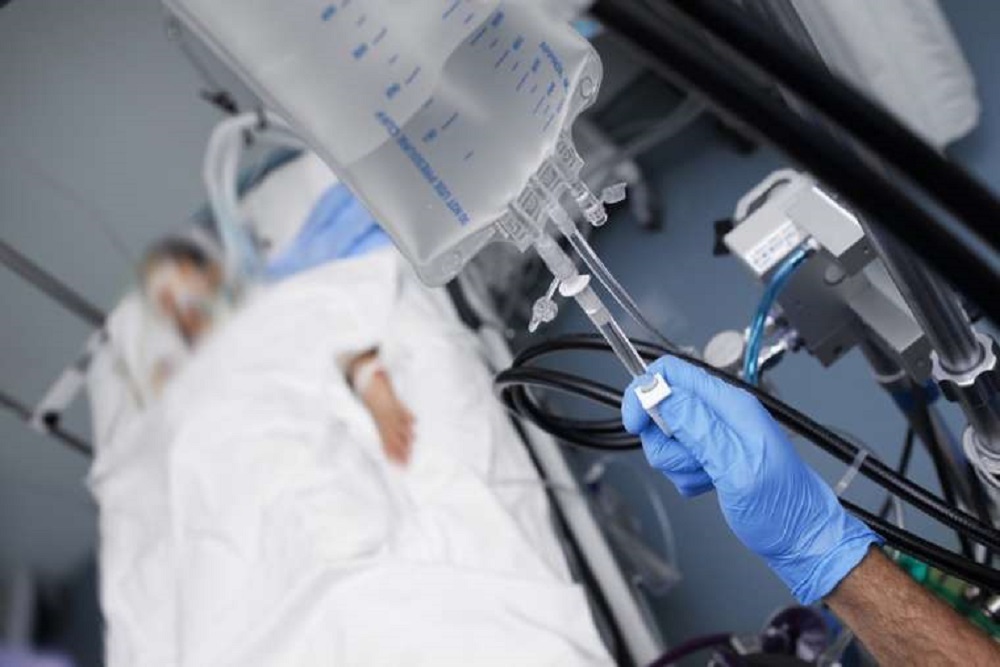Nativity of the Blessed Virgin Mary issued the following announcement on May 08.
After the Congregation for the Doctrine of the Faith ruled that the hospitals of the Brothers of Charity in Belgium can no longer be considered as Catholic, the religious order is seeking to prevent the hospital network from using its name, their general superior told CNA.
Br. René Stockman, general superior of the Congregation of the Brothers of Charity, said he fought to keep the Catholic identity and mission of the hospitals intact. But when the Brothers of Charity Organization, the non-profit group which manages the hospitals, approved pro-euthanasia guidelines 2017, he immediately referred the matter to the Congregation for the Doctrine of the Faith, which issued its decision at the end of March.
The CDF decision was communicated in a letter dated March 30, stating that "with deep sadness" the "psychiatric hospitals managed by the Provincialate of the Brothers of Charity association in Belgium will no longer be able to consider themselves Catholic institutions."
Stockman said he was now working to stop the 15-hospital network run by the Brothers of Charity Organization, the non-profit which brought in the pro-euthanasia policy, from continuing to use the order’s name.
“As a congregation,” Br. Stockman said, “we will clearly ask them not to use the name Brothers of Charity anymore for the psychiatric hospitals,” adding that ”we will do everything to come to clear arrangements without going to legal fight.”
“We hope that we can make it [work] in that way,” he said, but the non-profit’s board have signalled resistance.
Raf De Rycke, president of the Brothers of Charity Organization, said on May 5 that he intends to continue using the order’s name, and claimed the hospitals fulfil the same mission, and the same vision as ever, despite bringing in euthanasia.
The Stockman said the order was always adamant that they would never accept the possibility of euthanasia in their hospitals, but only a few brothers remain working in the hospitals, mostly in management roles. The order has asked them to leave their positions, now that they can no longer be considered Catholic.
But, he said, “there are many doctors who don’t agree with the situation and they made their objection of conscience, but it becomes more difficult for them in an environment where the management is developing clear guidelines on how to perform the process and moving towards euthanasia when a psychiatric patient is asking for it.”
Belgium has ushered in ever-expanding access to euthanasia in recent years, including for mental health patients, even minors, suffering from conditions like depression. Belgian law prohibits contractual clauses or other provisions prohibiting doctors working in institutions to euthanize patients. A doctor or nurse still has the individual freedom of conscience to refuse to euthanize or participate to euthanasia, but the same freedom is no longer afforded to insitutions.
Stockman said there was no question of not complying with Rome’s decision, and he hoped it would inspire others to reconsider the gravity of the spread of euthanasia.
“We hope that also others will reflect on it, especially in the field of mental health care. It is the first time that the Holy See through the CDF has given a clear answer on the growing practice of euthanasia in the field of mental health care,” he told CNA.
Belgium has ushered in ever-expanding access to euthanasia in recent years, including for mental health patients, even minors, suffering from conditions like depression.
In an official statement published on their website, the Brothers of Charity Organization has accused Stockman of using the issue of euthanasia "within a broader and longer-lasting conflict” between the order and the non-profit on the use of assets.
The non-profit suggested that Stockman has long wanted to devote more resources to the Brothers’ missions in Africa and Asian, as vocations have dried up in Belgium, where most of the order’s members are over eighty. Meanwhile, in the developing world, the congregation is growing; last year Br. Stockman welcomed 27 new novices in Nairobi.
The Brothers of Charity Organization frames the dispute as one of control over assets, and its statement said they "do not see the need to adapt our operations after this [CDF] letter because we are convinced that we are acting correctly."
The situation is being monitored closely by other Catholic organizations in the country who see it as a possible test case. So far, the bishops have remained circumspect.
In a May 6 statement, the Belgian Episcopal Conference said that "the bishops experience this as an excruciating and complex affair, in which different types of topics and different lines of responsibility meet."
The conference called for "a prolonged dialogue between all those involved,” while stressing their "utmost appreciation for the commitment of the Brothers of Charity in Belgium and all their employees to the benefit of mentally disabled, sick or injured people."
Calls for dialogue, however, may prove wishful thinking. As part of its review of the situation, the CDF sent Bishop Jan Hendriks, auxiliary of Amsterdam, as an apostolic visitor to try to resolve the situation, but, the Congregation said, he was unable to find "a viable solution that avoids any form of responsibility of the institution for euthanasia."
The conference also said that "based on their pastoral responsibility, the bishops will continue to work for unity and solidarity in the ecclesial community. They maintain their trust and will continue to cooperate with all the health institutions of Christian civil society."
Stockman did not comment on the bishops’ conference statement.
“Of course,” he said, “we feel, as a congregation, alone [in this fight], but [we are proceeding] in line with the doctrine of the Church, with the clear statement made by our general chapter in 2018 and with our charism of charity.”
Original source can be found here.







 Alerts Sign-up
Alerts Sign-up